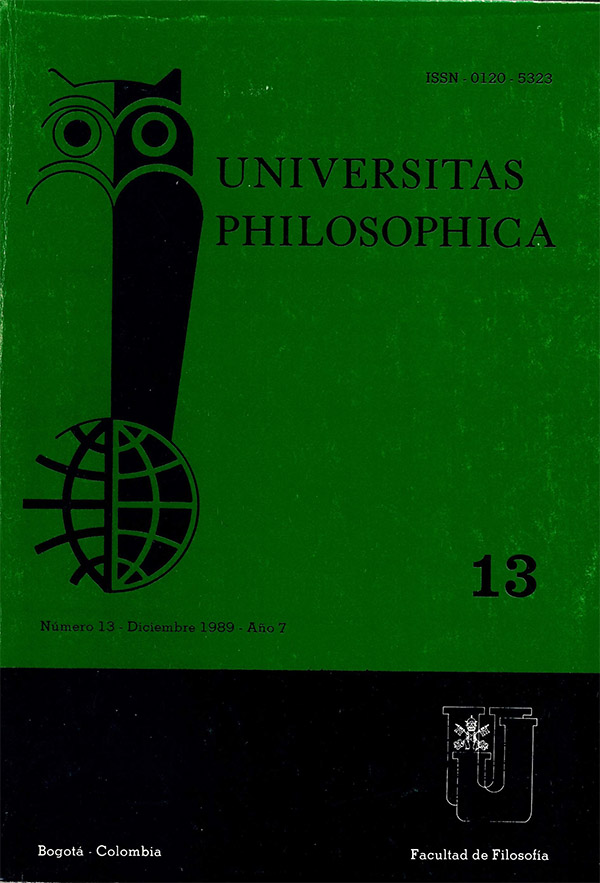Abstract
El presente artículo pretende rescatar un aporte fundamental de Aristóteles en relación con el método de investigación de la Filosofía Práctica. En tal ámbito no es posible aspirar a una lógica demostrativa o deductiva. ¿Desde dónde construir, entonces, la "filosofía de las cosas humanas"? ¿Cuál es el método de investigación en tales materias?
El análisis del procedimiento empleado por Aristóteles en la construcción de la Filosofía Práctica nos remite a lo que él denomina el razonamiento dialéctico en el libro de los Tópicos. Se pretende mostrar cómo el curso de las argumentaciones éticas sigue el modelo de tal razonamiento.
El razonamiento dialéctico se constituye, pues, en el método propio de, investigación en la Filosofía Práctica y particularmente en la búsqueda del concepto de Felicidad.
This journal is registered under a Creative Commons Attribution 4.0 International Public License. Thus, this work may be reproduced, distributed, and publicly shared in digital format, as long as the names of the authors and Pontificia Universidad Javeriana are acknowledged. Others are allowed to quote, adapt, transform, auto-archive, republish, and create based on this material, for any purpose (even commercial ones), provided the authorship is duly acknowledged, a link to the original work is provided, and it is specified if changes have been made. Pontificia Universidad Javeriana does not hold the rights of published works and the authors are solely responsible for the contents of their works; they keep the moral, intellectual, privacy, and publicity rights.
Approving the intervention of the work (review, copy-editing, translation, layout) and the following outreach, are granted through an use license and not through an assignment of rights. This means the journal and Pontificia Universidad Javeriana cannot be held responsible for any ethical malpractice by the authors. As a consequence of the protection granted by the use license, the journal is not required to publish recantations or modify information already published, unless the errata stems from the editorial management process. Publishing contents in this journal does not generate royalties for contributors.


